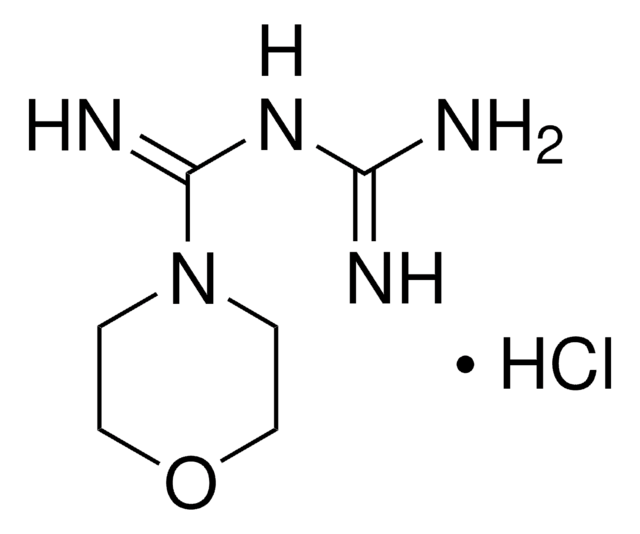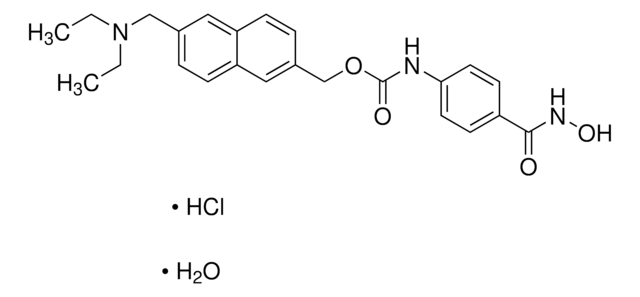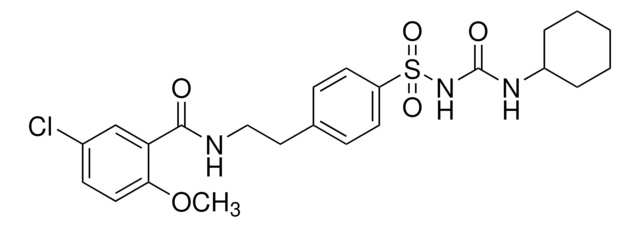N3539
Nicorandil
≥98% (HPLC)
Synonym(s):
2-(Pyridine-3-carbonylamino)ethyl nitrate, 2-Nicotinamidoethyl nitrate, Ikorel, N-[2-(Nitrooxy)ethyl]-3-pyridinecarboxamide, SG-75, Sigmart, Zynicor
About This Item
Recommended Products
Quality Level
Assay
≥98% (HPLC)
form
powder
color
white to off-white
solubility
DMSO: >10 mg/mL
storage temp.
room temp
SMILES string
[O-][N+](=O)OCCNC(=O)c1cccnc1
InChI
1S/C8H9N3O4/c12-8(7-2-1-3-9-6-7)10-4-5-15-11(13)14/h1-3,6H,4-5H2,(H,10,12)
InChI key
LBHIOVVIQHSOQN-UHFFFAOYSA-N
Looking for similar products? Visit Product Comparison Guide
Application
Biochem/physiol Actions
Features and Benefits
Signal Word
Danger
Hazard Statements
Precautionary Statements
Hazard Classifications
Acute Tox. 4 Oral - Org. Perox. D
Storage Class Code
5.2 - Organic peroxides and self-reacting hazardous materials
WGK
WGK 1
Flash Point(F)
Not applicable
Flash Point(C)
Not applicable
Personal Protective Equipment
Choose from one of the most recent versions:
Certificates of Analysis (COA)
Don't see the Right Version?
If you require a particular version, you can look up a specific certificate by the Lot or Batch number.
Already Own This Product?
Find documentation for the products that you have recently purchased in the Document Library.
Customers Also Viewed
Our team of scientists has experience in all areas of research including Life Science, Material Science, Chemical Synthesis, Chromatography, Analytical and many others.
Contact Technical Service













